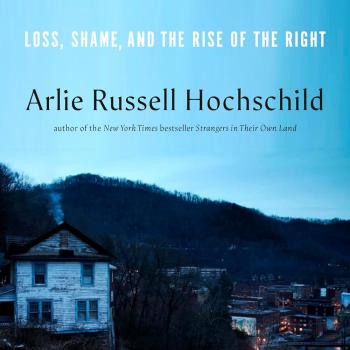 By Michael De Dora
By Michael De Dora
We live in a time when most Americans -- indeed, most humans -- believe that we have a work of divine authoring or inspiration on our bookshelves. Accordingly, most Americans believe in the existence of a supernatural realm, in a God who can change the course of human events, and in Heaven and Hell. These religious beliefs, combined with other related or implied religious ideas, are severely harming social and political affairs in the United States and beyond. How might we change this?
The ensuing conversation would be wide-ranging, but would surely include secular humanism at some point. Secular humanism (or humanism, as I will call it for reader ease) is a philosophy that rejects the supernatural and faith as sources of reliable knowledge and instead asks us to rely on science, reason, and the naturalistic outlook. Humanism holds that we can apply critical reasoning to all claims. It focuses us on how we can have a good life now, and how we can make life good for other conscious, sentient creatures on Earth. It asks that we foster a world based on ideas like wisdom, justice, equality, empathy, compassion, individuality, collective sacrifice, and happiness.
Notice two important things before we move on. First, humanism does not necessarily demand atheism. One can believe in some form of the supernatural or God while not relying on those for answers to questions about meaning, morality, or politics. Second, humanism is not a religion, as religion is commonly understood. It is not a replacement for one religion or another, but rather an alternative to religion.
It is my opinion that the tenets of humanism are more widespread than most believe -- that many people are essentially humanists without knowing it (to be fair, the word humanism isn't very popular). Whether or not we realize it, we all have basic senses of right and wrong that drive our moral decision-making. When we act morally, our reasons are usually nothing transcendental, just simple respect and compassion for others.
This does not mean humanist values do not need spreading. Religious morality must be countered, and people must realize their potential to be good without dependence on or reference to religion. But for me, the future of humanism depends very much on the secular quality of our discussions on morality. Morality is an enormously important topic. It is at the core of both religion and nontheistic philosophies, and informs both social and political decisions. A secular-oriented conversation about morality will pare down needless or wrong religious morality, and further enlighten others about humanist moral values.
Pursuing a secular-oriented conversation on morality is not an easy task. The nature of belief (in that it is tied to action), and fully open discourse, means we cannot control which beliefs and reasons are put forth. A person's religious views often influence his or her moral views, and our public discourse does not and should not bar these views from entry. Secularists may desire to hear more secular reasons from others, but people cannot be forced to give them in opposition to their real beliefs.
Yet we can attempt to steer public discourse in ways we believe will help us get closer to the truth. However, any attempt cannot ignore that we live not just in an open society, but also in a pluralistic democracy. As such, religious moral views are absolutely allowed to enter into the public square, but they cannot be defended solely by reference to a holy book or faith. As President Barack Obama notes in The Audacity of Hope, "What our deliberative, pluralistic democracy does demand is that the religiously motivated translate their concerns into universal, rather than religion-specific, values." An example he uses is abortion:
If I am opposed to abortion for religious reasons and seek to pass a law banning the practice, I cannot simply point to the teachings of my church or invoke God's will and expect that argument to carry the day. If I want others to listen to me, then I have to explain why abortion violates some principle that is accessible to people of all faiths, including those with no faith at all.
To further illustrate this point, Obama recalls the well-known biblical story of Abraham and Isaac. Obama writes:




